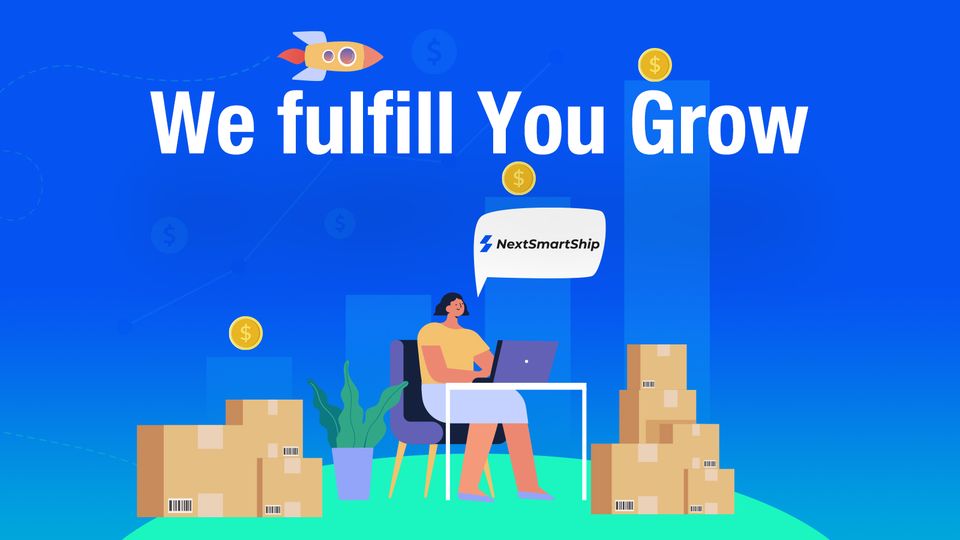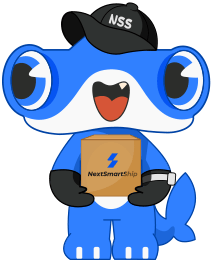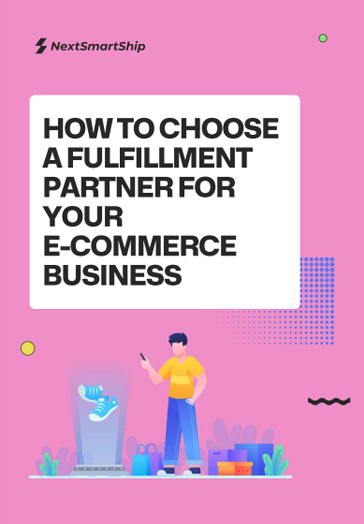It’s common for newbies in industries to confuse B2B and B2C fulfillment, as both deal with outbound and inbound logistics. However, B2B fulfillment is more focused on lower order volumes but higher product quantities, whereas B2C fulfillment focuses on smaller orders. Additionally, B2B has more associated costs. Wondering why? Let’s figure it out in this guide. It features comprehensive details regarding B2B fulfillment, its basic difference from B2C fulfillment, and much more. So, without any further ado, let’s begin exploring!

What is B2B Fulfillment?
B2B fulfillment, better known as business-to-business fulfillment, is achieved when a business or retailer supplies inventory to another business. The receiver might use the supplied goods or resell them to customers. B2B order fulfillment mostly deals with bulk orders.
B2B vs. B2C: What Are the Differences?
The major difference between B2B and B2C fulfillment is the size. As mentioned earlier, B2B fulfillment deals with bulk orders, whereas B2C is limited to smaller order quantities. But that’s not the only difference, though. Here are some more differing points between B2B and B2C.
Shipping Costs: B2B orders being in bulk require more shipping costs and might take longer to reach the destination. Some orders also require specialized handling equipment. Meanwhile, B2C orders have low shipping costs, are often free, and can reach their destinations much more rapidly than B2B orders.
Shipping Methods: B2B orders are mostly shipped via freight, and their logistics are much more complex. On the other hand, B2C orders can be sent via parcels. Note that there’s no hard and fast rule in this case. If a B2B order is small enough to be packed into boxes, it can be sent via parcel, too.
Regulations: Certain industries have imposed regulations on how to ship B2B goods. For instance, regulations must be met when shipping heavy items or hazardous materials. Conversely, B2C fulfillment doesn’t include such strict regulations.
Pricing Strategy: B2B fulfillment must offer prices based on the client’s requirements, mainly the quantity required. However, in B2C fulfillment, pre-specified standard pricing is followed for each customer.
Contracts: Usually, B2B procurement contracts cost millions of dollars and last for longer spans. Whereas B2C fulfillment is a one-time-only purchase. Customers might reorder, but there isn’t any contract-like thing in B2C.
Customer Expectations: In B2B fulfillment, the receiving party has stringent requirements with specific packaging needs and a precise delivery window. Conversely, B2C fulfillment focuses on accurate, timely deliveries with fewer customization requirements.
Key Processes of B2B Fulfillment

The typical B2B fulfillment process involves various steps to help businesses optimize their operations and ensure on-time deliveries and, thus, customer satisfaction. Here’s a detailed breakdown of the key processes of B2B fulfillment
Process 1: Receiving and Storing Inventory
Products are received from the manufacturer and are carefully inspected for quality and quantity. Once it’s done, these products are stored at a well-optimized location to ensure easy access. Meanwhile, inventory levels are updated, and manufacturers receive real-time inventory updates.
Process 2: Order Processing
Whenever an order is received from a distribution center or marketplace, it’s reviewed to ensure that the required product is available in the required quantity on the required delivery date. If everything is checked, the order is marked accurate and has been added to the inventory management system. The next step is to pick the mentioned items from the storage locations.
Process 3: Order Packing
Picked products are now sent for packing to ensure safety during transit. The choice of packaging material is made based on the distance the shipment is supposed to travel and the nature of the to-be-packed products. Once the items are securely packed, necessary documentation, like custom paperwork or invoices, is included with it.
Process 4: Shipping and Logistics
Shipping information is labeled on the packed order, and shipping arrangements are made. The key is to choose the best B2B shipping carrier and method to ensure the goods are delivered within the specific timeframe. Once everything is arranged, the order is dispatched, and tracking information is sent to the customer.
Process 5: Delivery and Confirmation
On-time delivery of goods is ensured, and the customer is requested to inspect the order for any damage or incompleteness. Moreover, delivery confirmation is sent to both the manufacturer and the consumer, and in case of any issues, necessary measures are taken to ensure customer satisfaction.
Process 6: Returns and Reverse Logistics
If a customer needs to return an item, a return authorization is issued. Now, reverse logistics is implemented to return goods to the warehouse and update inventory levels after inspection. Moreover, adjustments are made to the customer, either in the form of a full or partial refund or a replacement product
Benefits of Outsourcing B2B Fulfillment
Let’s now overview the different perks of outsourcing B2B fulfillment!
- It saves you time and resources, so you can focus on other areas of your business. For instance, product development or taking steps toward sustainability.
- Expenses like rent and labor become flexible, adjusting based on order volume instead of staying fixed.
- Outsourcing helps you handle seasonal surges in shipping and returns without the extra hassle.
- Reputable fulfillment providers guarantee their work so you can have peace of mind.
- Most providers rely on AI-powered systems, reducing the chances of manual errors and increasing customer satisfaction.
- The combination of well-known people and AI can help you generate better insights into the type of products you should work on and assist in other crucial business decisions.
What to Look for in B2B Fulfillment Services?
Tempted by the perks of B2B fulfillment and wondering what you should look for in your ideal B2B fulfillment services? Let’s find out!
Responsive Customer Care
B2B relationship is all about trust and reliance, as most B2B contracts last longer, like six months to a year or even more. So, the B2B fulfillment provider you are looking for must take this relationship seriously and be available all the time to handle any sort of issues that could result in customer dissatisfaction if not handled cautiously. Prefer providers that implement AI-powered solutions to efficiently analyze complex agreements and review contract terms within B2B relationships.
AI Integration
AI is now almost everywhere in order processing, from picking the right product to sending real-time inventory updates, packing the goods according to requirements, and letting customers track their orders. So, prefer a provider that is committed to incorporating the latest AI solutions into its systems to enhance efficiency, accuracy, and overall customer experience.
Trained Staff
B2B fulfillment providers must have well-trained staff with the expertise needed to handle standard operating procedures. Everything from communication skills to good management decisions accounts for making a business grow well. So, research well and read reviews from different sites before you outsource B2B fulfillment from any provider.
EDI Compliance
EDI is a combination of processes and systems that enable retailers to exchange documents, such as transactions, with their vendors, suppliers, or brands in a pre-set electronic format. So, the B2B fulfillment provider you choose must be EDI-compliant to ensure the order fulfillment process is smooth and transparent.
Order Dashboard
It’s one of the must-haves for B2B fulfillment company clients. So, prefer a provider which implements advanced analytics and reporting to track B2B orders, inventory levels, and other such things. A tracking facility must also be provided to the customers so they get an idea about the current status of their orders.
Let NextSmartShip Handle Your B2B Fulfillment!
Wondering what’s the best B2B fulfillment service that checkmarks all the criteria mentioned above? NextSmartShip, indeed. This amazing fulfillment service specializes in offering comprehensive services. From picking, packing, and shipping to handling returns and exchanges, everything is done seamlessly to ensure on-time deliveries and customer satisfaction.

Currently, NSS is in partnership with over 400 shipping lines and has over 15+ fulfillment centers. With it, you can save up to 40% on your entire order fulfillment costs. That’s the reason why over 2,000 DTC brands have chosen NSS to handle their logistics and order processing. Curious to know more about them? Visit their official website.
Conclusion
B2B fulfillment refers to the supplying of goods from one business to another. It’s a relationship between two businesses in which one business sells its goods to another, and the latter resells them to customers. Businesses can outsource B2B fulfillment to skip loads of hassle, like worrying about the approaching deadlines, inventory levels, picking, packaging, and shipping. This is because a B2B fulfillment provider will handle all of this for them. This way, they can pay more attention to other important business aspects, like expanding product range or increasing product standards.
If you are looking to partner with a reliable B2B fulfillment service, we recommend checking out NextSmartShip. Not only are their services comprehensive, but their team is also well-trained to efficiently handle different tasks and be available for support 24/7.



